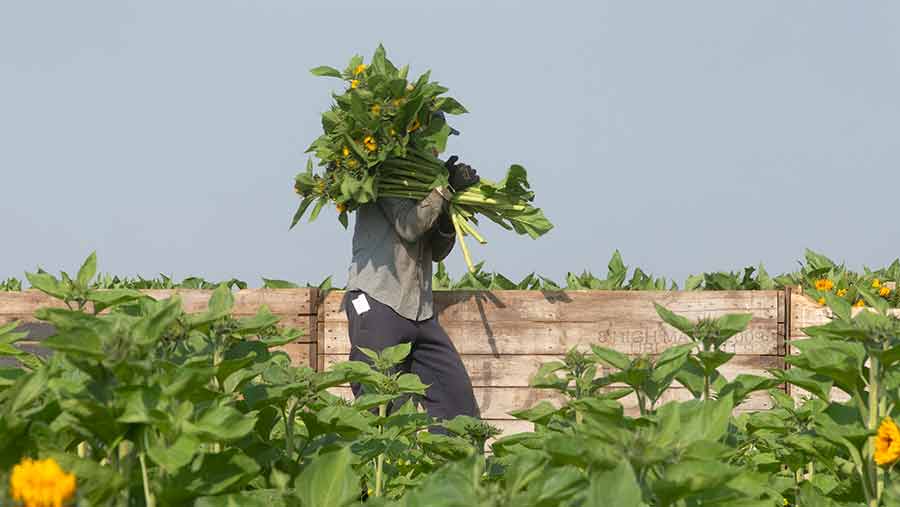Penalties for employing illegal workers to triple in 2024
 © Tim Scrivener
© Tim Scrivener Farm businesses are being urged to ensure they do not fall foul of new government rules which will see increased penalties for employing illegal workers.
From the start of 2024, civil penalties for a first-time breach will be tripled from £15,000 to £45,000 per illegal worker. The fine will be £60,000 per illegal worker for repeat offences (up from £20,000).
For landlords who permit illegal immigrants to rent their properties, the fines will increase from £80 per lodger and £1,000 per occupier for a first breach to up to £5,000 per lodger and £10,000 per occupier. Repeat breaches will be up to £10,000 per lodger and £20,000 per occupier.
See also: Farm staff: Employed, self-employed or worker – know the rules
Immigration minister Robert Jenrick said the Home Office is introducing the tougher penalties to deter unscrupulous landlords and employers from employing illegal immigrants.
“There’s no excuse for not conducting the appropriate checks and those in breach will now face significantly tougher penalties,” he added.
‘Oversight’ warning
Ashley Stothard, an immigration executive from Freeths LLP, based in Leeds, said she was not aware of any farm businesses that deliberately set out to employ illegal immigrants, although these may exist.
However, businesses were more likely to get caught out by an “oversight in the paperwork”.
She urged all farm businesses employing overseas workers to check they adhere to Home Office rules, which are available online at Gov.uk.
“Employers should ask prospective overseas workers to provide a share code to access their online immigration status record,” noted Ms Stothard.
“They can always contact HMRC employer support if they have more detailed questions.”
George Miller, an employment lawyer at Midlands-based agricultural law firm Roythornes, said the obligation on employers to check employees’ right to work is not new.
However, he recommends all farm employers review their processes in light of the increased penalties for non-compliance.
“It is not enough for employers to check the employee’s documents or online immigration record – they also need to retain copies of the checks and the documents they’ve reviewed.
“If an employer is investigated, the burden is on them to prove they conducted the checks before the employment started,” said Mr Miller.
“The checks should be done for all employees regardless of where they are from, including UK citizens, otherwise employers may be vulnerable to discrimination claims.”
He added: “In practice, larger rural businesses with HR support and the ability to bring in teams of workers from overseas are more likely to be compliant with the rules.
“Smaller businesses and farms without any HR function, or limited electronic records, could be more at risk from inadvertently incurring a significant penalty.”
